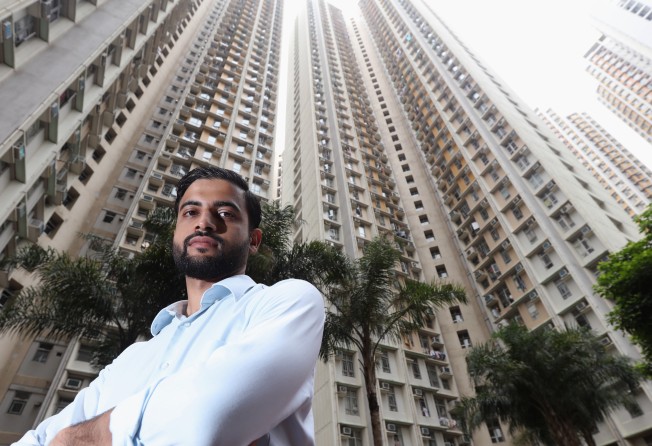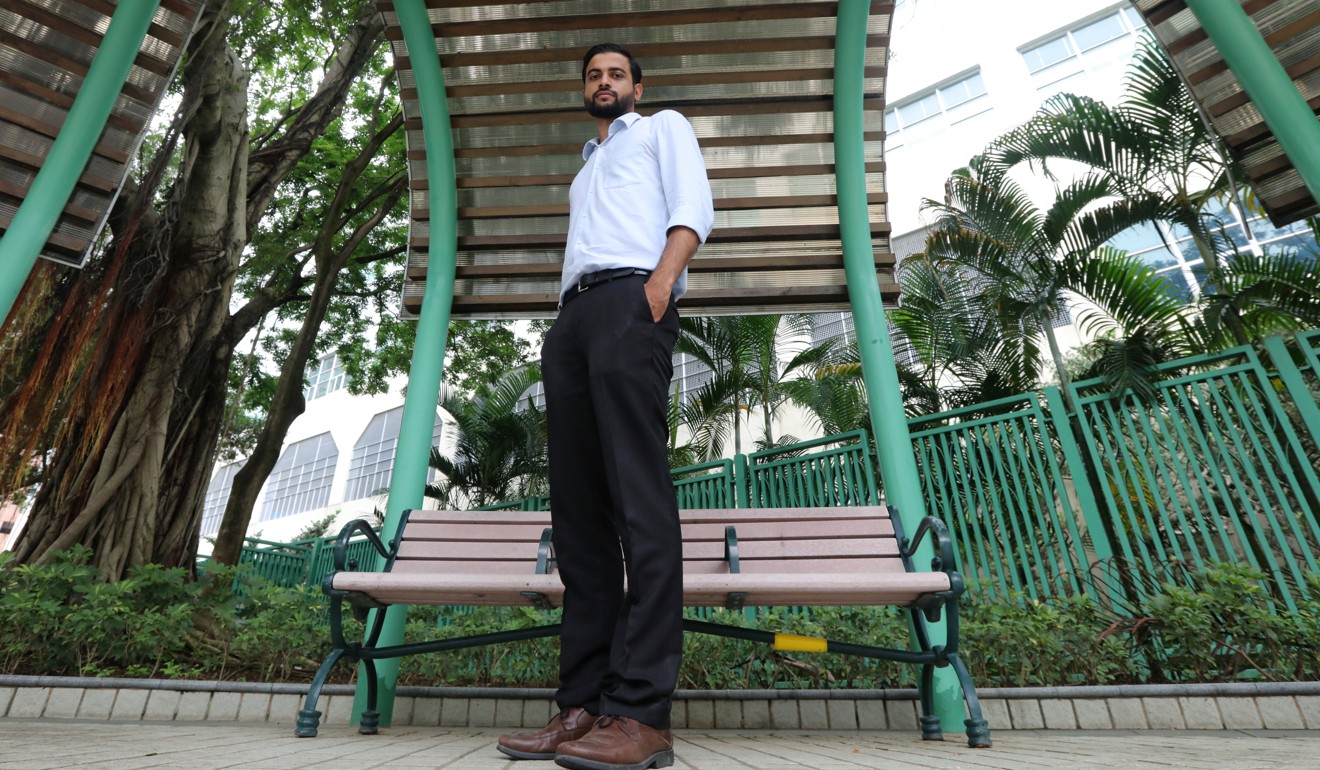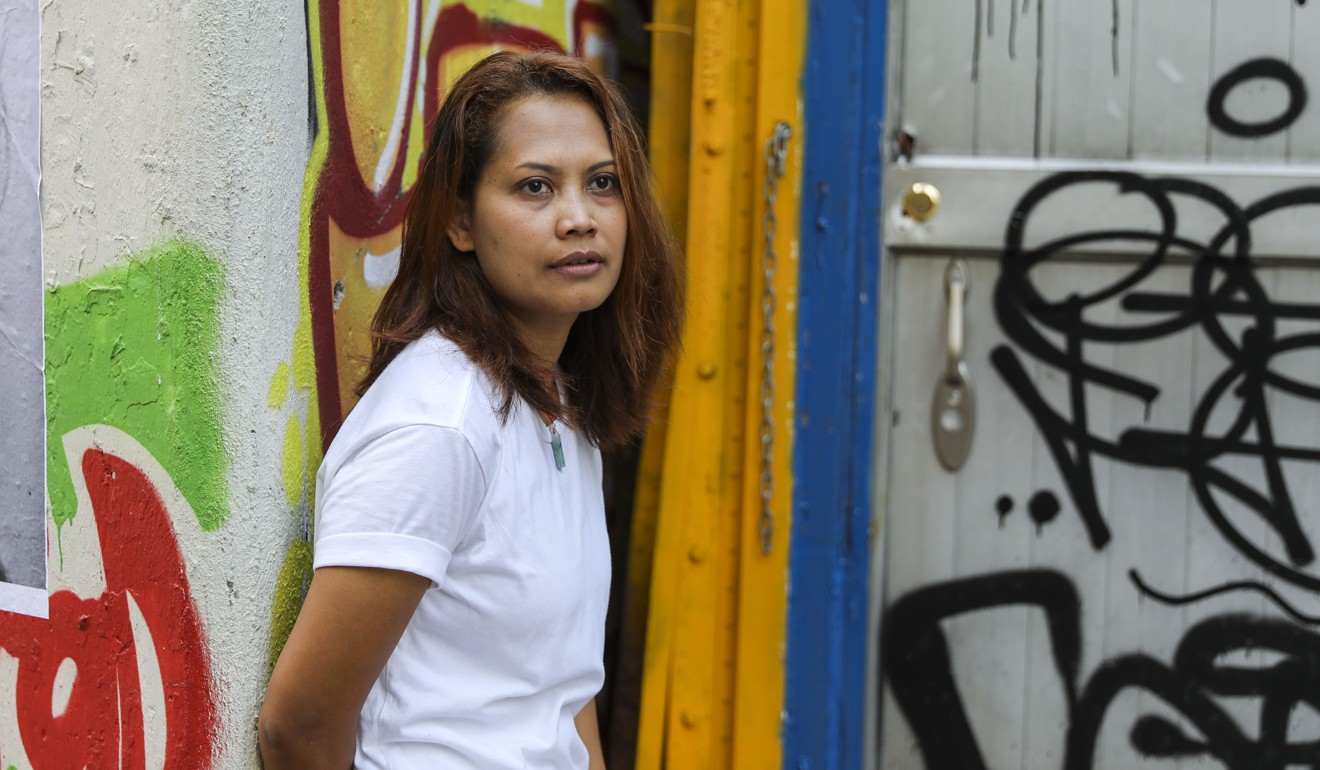‘Indonesian helpers are thieves’: shocking statements of prejudice toward ethnic minorities exposed by charity’s campaign to tackle racism in Hong Kong
- Video series ‘Stories of Everyday Racism in Hong Kong’ is being released on Facebook and YouTube in both English and Cantonese
- Campaign show attitudes to race are mired in past with some suggesting combating systemic racism starts from lack of diversity in schools

“Indonesian helpers are often thieves.... Sorry, we cannot accommodate Africans.... We don’t rent to Pakistanis.”
These might sound like shocking statements, but in a new video campaign on social media, Hong Kong charity Resolve Foundation aims to show how racism is a harsh reality for many non-Chinese ethnic minorities in the city, and how those discriminated against are fighting back.
The voices in the campaign include: a law student from Togo in West Africa who recalls how Hong Kong landlords told him: “Sorry, we don’t want an African”; a Bangladeshi English teacher who recounts being described in derogatory terms by a student; an Indonesian helper who describes being shouted at by restaurant staff for requesting an English menu.
Hong Kong’s Equal Opportunities Commission has voiced its support for the series, titled “Stories of Everyday Racism in Hong Kong”, which is being released on Facebook and YouTube in both English and Cantonese.
The campaign will publish one new video every week until November 6, culminating in a live panel discussion with a Cantonese-speaking audience.
One of the speakers for the event, Yasir Naveed from Pakistan, explains to the Post what “everyday racism” means to him.

“A very obvious example is that I cannot take a taxi in Hong Kong, and it’s just because of the colour of my skin,” Naveed, 28, says. “At least 90 per cent of the time, they won’t stop for me. Even if I queue up and get into the back of a cab, the driver will tell me to get out.” The environmental consultant says nowadays he does not even bother with taxis, opting instead for ride-sharing services.
At least 90 per cent of the time, taxis won’t stop for me
Arista Devi from Java in Indonesia first arrived in Hong Kong in 2009 to work as a domestic helper. She is also an author and in 2013, released a self-published book in her native language about migrant workers in Hong Kong. Devi describes the problem of racism as being both widespread and deeply ingrained in Hong Kong society.
“Shop staff treat Hong Kong people and perhaps [Westerners] very nicely,” Devi says. “They ask ‘how may I help you?’; they smile.” This is not the case, she says, for Indonesian helpers. “They look down on us and say – you have no money.”

Devi’s friend Hei Kocho, 38, also from Indonesia, recounts an experience in which she was shopping with others in a small jewellery store in Mong Kok when the shop owner abruptly stopped them.
“She thought I could not understand Cantonese and said to her colleague: ‘Check their bags, Indonesian helpers are often thieves,’” Kocho recalls. “They made me empty my bag on the floor.” Devi and Kocho both say this sort of treatment at the hands of shop staff and customer service personnel is routine.
Shop staff treat Hong Kong people and perhaps [Westerners] very nicely ... They look down on us and say – you have no money
Ethnic minorities make up 8 per cent of Hong Kong’s population – fewer than 600,000 out of a total of 7.4 million people. But the problem of racism is widely acknowledged: a survey earlier this year by the Education University of Hong Kong found that six out of 10 Hongkongers think ethnic minorities in the city suffer prejudice.
Beyond simply highlighting instances of racial prejudice, however, Resolve Foundation says it wants to make a positive contribution to Hong Kong society by empowering individuals from ethnic minority groups to speak up for themselves and become community leaders.
The charity’s fellowship programme, which began in August, comprises 13 individuals from 10 different nations. Aged 19 to 55, participants undertake a mentorship programme intended to coach them to be community leaders and pool ideas on combating prejudice.
Arista Devi is a member of the programme, and favours direct action.
“Now I ask shopkeepers: ‘Why do you think you can talk to me like that? Because I’m Indonesian?’,” she says. Devi adds that when she stands her ground, people often apologise. “Perhaps they assume we don’t understand discrimination and that we won’t stand up for ourselves.”
Naveed contends that to address systemic racism, Hong Kong’s schools need to change. Arriving in Hong Kong with his parents 13 years ago, he was sent to a school in Mei Foo that had an intake of mainly south and Southeast Asian children. “There was nobody to teach us Chinese,” Naveed recalls.
“It was like being sent to a special school.” He contends that the current system of concentrating ethnic minority children in a few schools perpetuates racism. “If local Chinese aren’t exposed to ethnic minorities, it allows the perpetuation of false assumptions,” he says. The solution, according to him, is to ensure that schools have a more diverse intake, allowing children to mix – but legislation will be required to enforce such changes.
The Equal Opportunities Commission, a statutory body that promotes anti-discrimination legislation, has thrown its weight behind the campaign.
“Resolve’s video campaign allows us to hear the voices of young ethnic minority Hongkongers, who though part of this city, often feel unwelcome here,” says Raymond Ho, a senior officer from the commission.
“Awareness is the starting point for change and the EOC fully supports this initiative to help people learn directly about the struggles and challenges of our fellow ethnic minorities, who also call Hong Kong home.”